Winning Strategies for Parent Teacher Conferences
Call me crazy, but I've always loved parent teacher conferences time. Let me explain! Not only is it a valuable time for parents to get an update on their child's progress, it provides me with a gold mine of ‘big picture' information about where my students come from and who they are as individuals.
Parent teacher conferences help me build relationships with students and their families. This is vital so that together we can understand and support their child in getting the most out of their time at school.
Sure, conferences can be time consuming and a lot of extra work. They can also be intimidating. But they don't have to be! (And if you're a new teacher, don't worry they do get easier.)
With careful preparation, you may just find that parent teacher conferences are a wonderful opportunity to create the supportive network that you need to help your students get the best education possible.
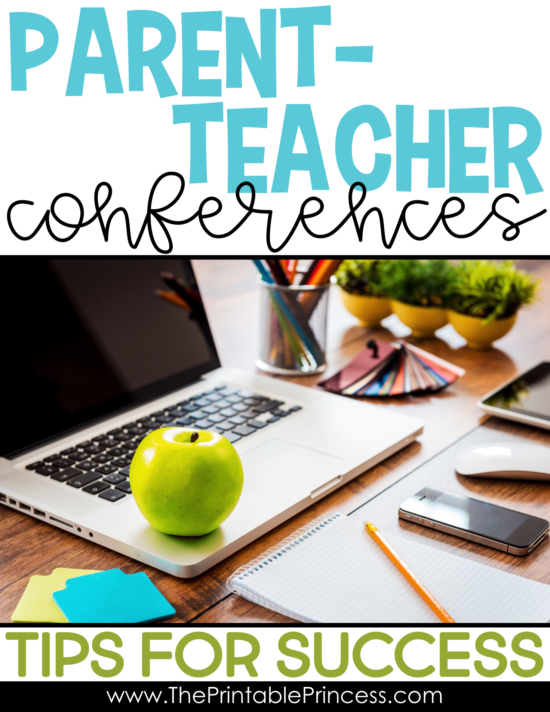 Here are a few tips and trick for before and during conferences to make them a positive experience for everyone.
Here are a few tips and trick for before and during conferences to make them a positive experience for everyone.
Before Parent Teacher conferences:
Be prepared.
The most important tip for making the most of parent teacher conferences is having a clear, consistent format and preparing materials ahead of time. The more organized you are ahead of time, the less stress you’ll feel when you’re sitting down face to face with your students’ parents.
If you are a new teacher, ask other teachers in your grade level to share their format and what work's for them.
Send out reminders.
Include a blurb in your weekly newsletter reminding parents of upcoming conferences. Send home an e-mail couple days before each conference session asking parents to confirm their conference time.
Create a welcoming environment.
One of my best tips for helping parents feel comfortable in my classroom during conferences is to set up a warm, inviting meeting spot. You might want to have bottled water and/or mints available. I like to have pens and paper handy for parents who might want to take notes during the parent teacher conference.
Be sure to set your area up with adult sized chairs and table- there’s nothing more awkward and intimidating than trying to cram an adult-sized body into a student-sized chair!
Consider your best seating strategy.
Pick the seating arrangement that will help both you and parents feel comfortable and at ease. And the seating arrangement may change depending on what you are expecting the conference to be like.
Sitting side by side on the same side of the table sets the stage for a collaborative conversation and makes you seem more approachable and relatable as you look through samples and reports together.
Alternatively, sitting across from each other allows you all to have direct eye contact and creates a safe zone in case of difficult conversations. If you do sit on opposite sides, make sure to seat parents with their backs toward the door so they won’t be distracted by any action in the hall, and you can keep an eye out for the next family waiting their turn.
Either way, it's also a good idea to position yourself where you can see the clock so that you can keep on schedule. Also, facing the clock with prevent you from needing to look at your watch.
Stage a waiting area.
If you're holding conferences back to back, have chairs for parents to wait in outside your door. A defined waiting area is inviting and shows that you are prepared and eager to meet with them.
Set up a table or desk with paper, markers, stickers, etc. for the parents to make a note to leave on their child’s desk while they are waiting.
Be prepared for students and younger siblings to attend.
Have a simple activity set up away from the conference table to keep kids occupied. Materials such as blocks, a puzzle, or art materials will keep them busy so their parents can focus. Put away things you don't want kids to get into.
During Parent Teacher conferences:
Take the lead.
You’ll be amazed at how quickly those fifteen or twenty minutes fly by. Set the stage for an effective conference by having a clear, consistent agenda. Take the lead and provide the information parents need, then leave time for questions at the end.
You don’t want to get off track and have parents leave the conference without getting the valuable information they need about their child.
Start on a high note.
Always start parent teacher conferences by sharing students' strengths. Hearing the good news first allows the parents to relax and be available to actively participate in the conference. Share a cute or funny story that shows you really know and appreciate their child.
Some teachers like to structure their conferences with the ‘compliment sandwich' strategy. Start the conversation with students' strengths, then tackle their challenges and finally, end with on a positive note.
Ask questions.
Seek out parents' advice with any issues you are having with their child. After all, they have a lifetime of experience with them and may have valuable insight into how you can help their child be successful in the classroom.
Give parents the opportunity to ask questions. If you don't know the answer, make a note so you don't forget. Be sure you follow up in the days after the conference to provide answers.
Have everything you need right in front of you.
Organize any papers or work samples in the order in which you want to talk about them. This will help you stay on track with your agenda and not waste valuable time searching for resources.
The one thing you shouldn't have right in front of you is your cell phone. Leave your phone on your desk or out of sight.
Provide examples of grade level work.
In addition to samples of their own child’s work, you might want/need to provide parents with peer examples. Sometimes parents, especially first time parents, don’t really know what kindergarten level work should look like. Whether their child is working at or below (or above!) grade level, these samples will give them an idea of what you are working toward.
Just remember, if you’re using another student’s work, be sure to cover their name to protect their privacy. (Post-it notes are great for this.)
Have an exit strategy.
Even before the conference begins, know how you will end it. Out of courtesy for your next set of parents, keep a close eye on the clock. Work toward a logical spot to wrap it up, then recap the important points you have talked about and end with an action plan going forward.
Signal them that the conference is over by being the first to stand and thank them for coming.
Most importantly, take care of yourself!
Try to schedule a few minutes between each parent teacher conference to catch your breath and regroup. Be sure to wear comfortable clothes and eat well that day. Practicing self-care will allow you to put your best foot forward and be fully present when you meet with parents.
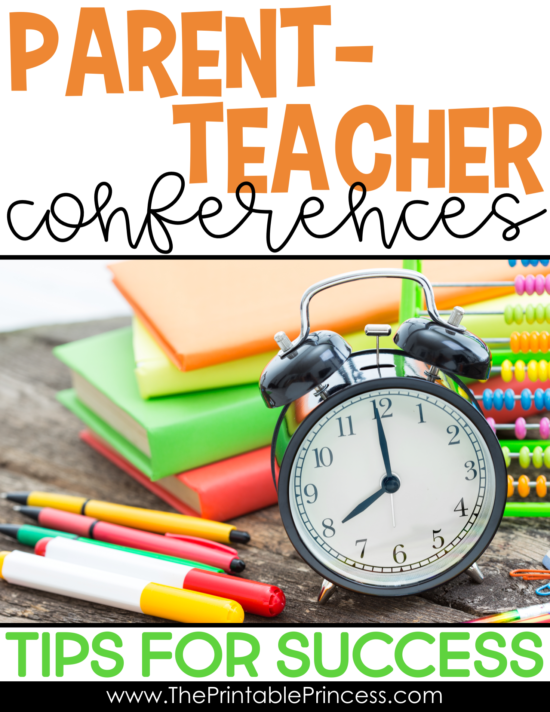
Putting in the time and effort to plan carefully for parent teacher conferences will definitely pay off in the end. The insight you gain into your students and the relationships you build with families will help you create a happy, successful classroom.
Just be sure to follow up with a quick e-mail or note thanking parents for coming.
Until next time,

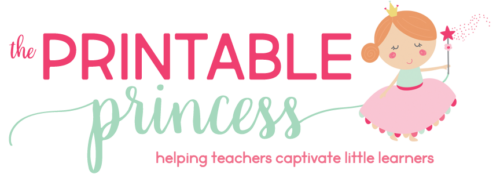
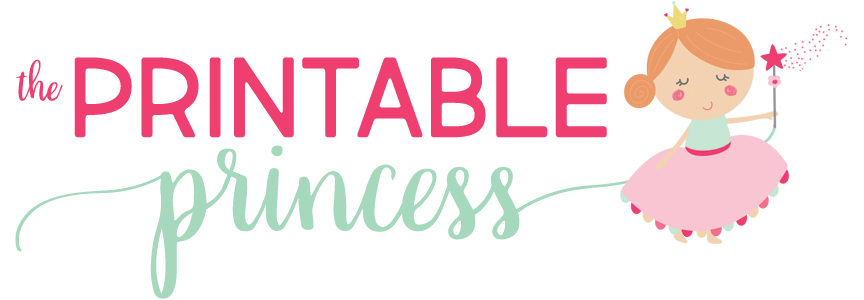
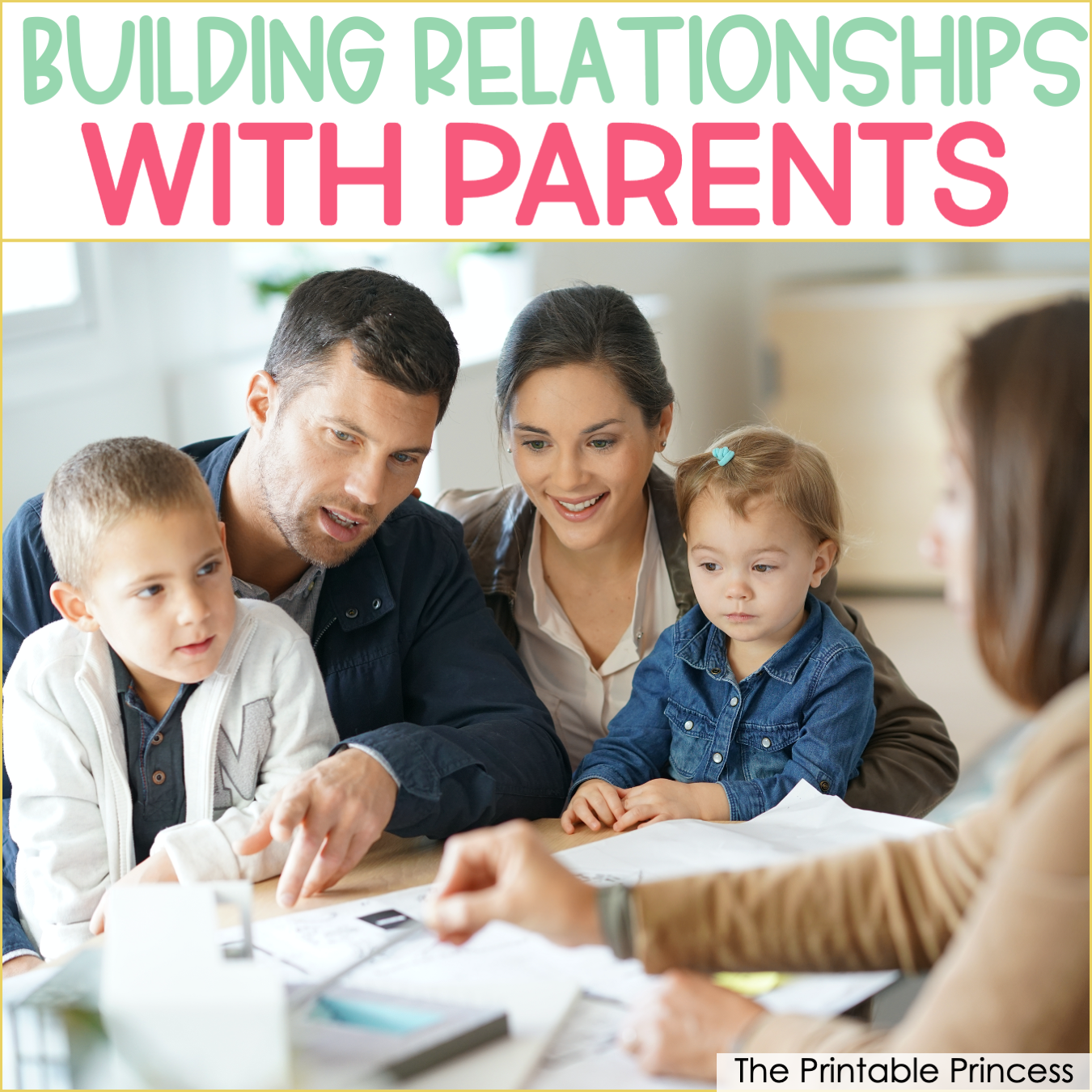
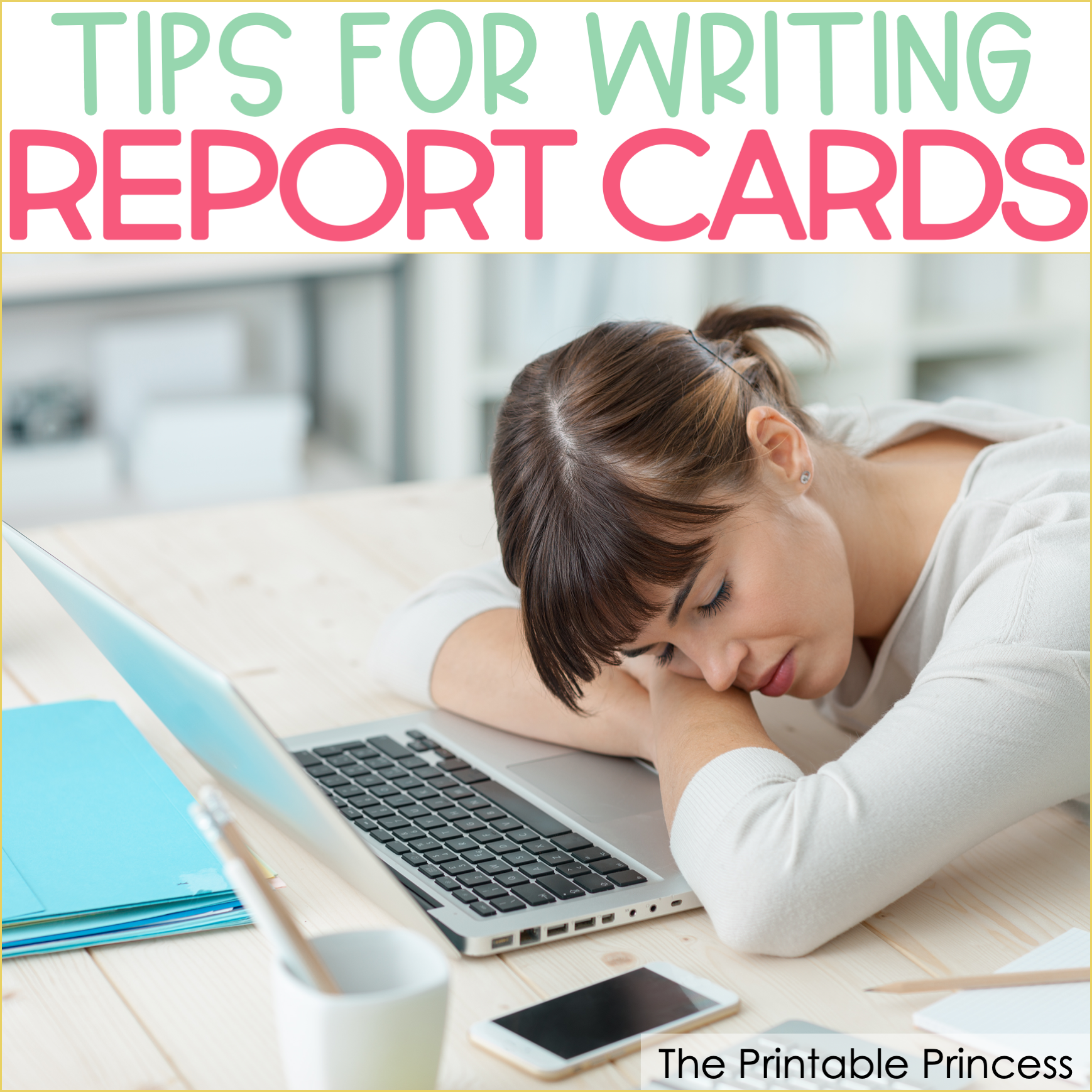

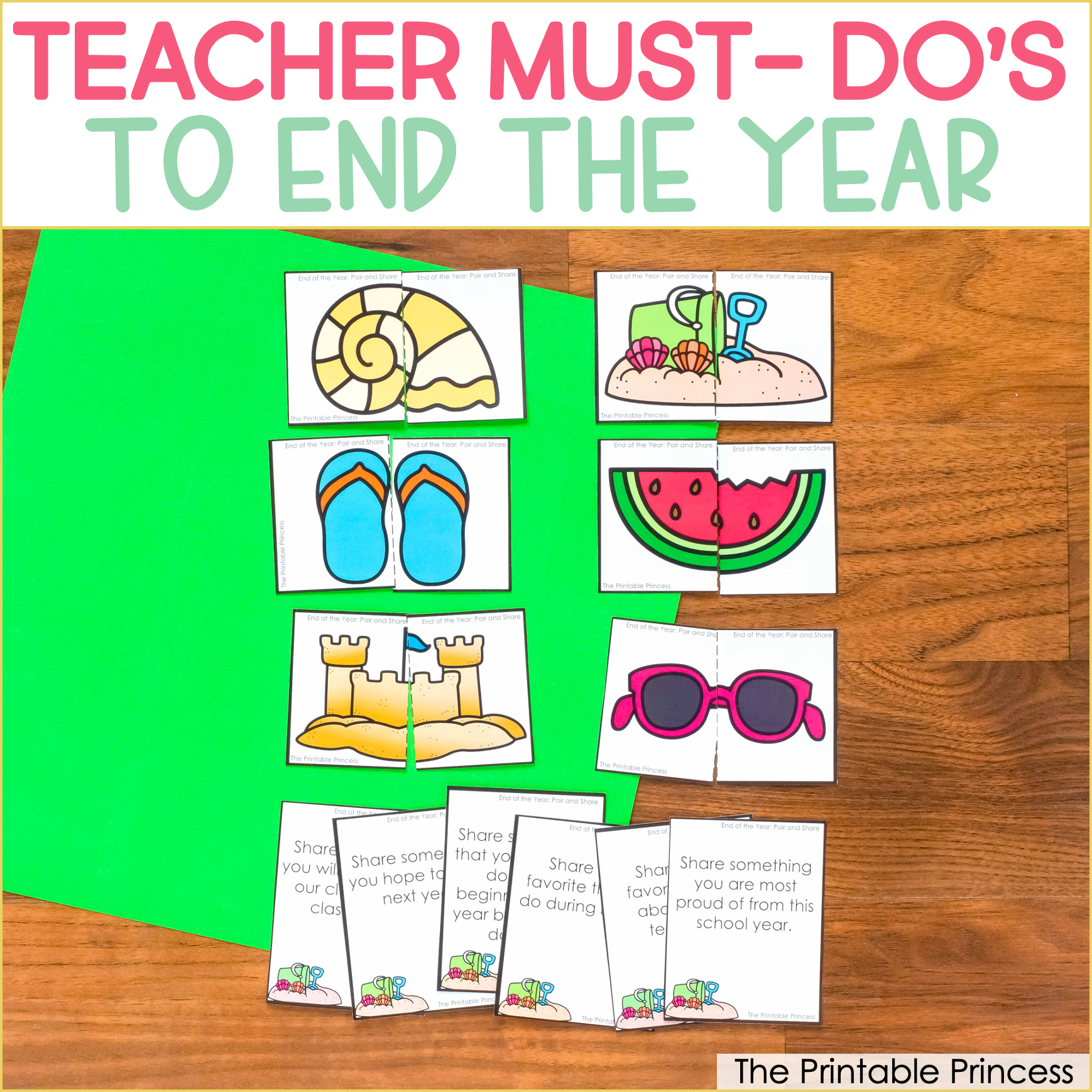
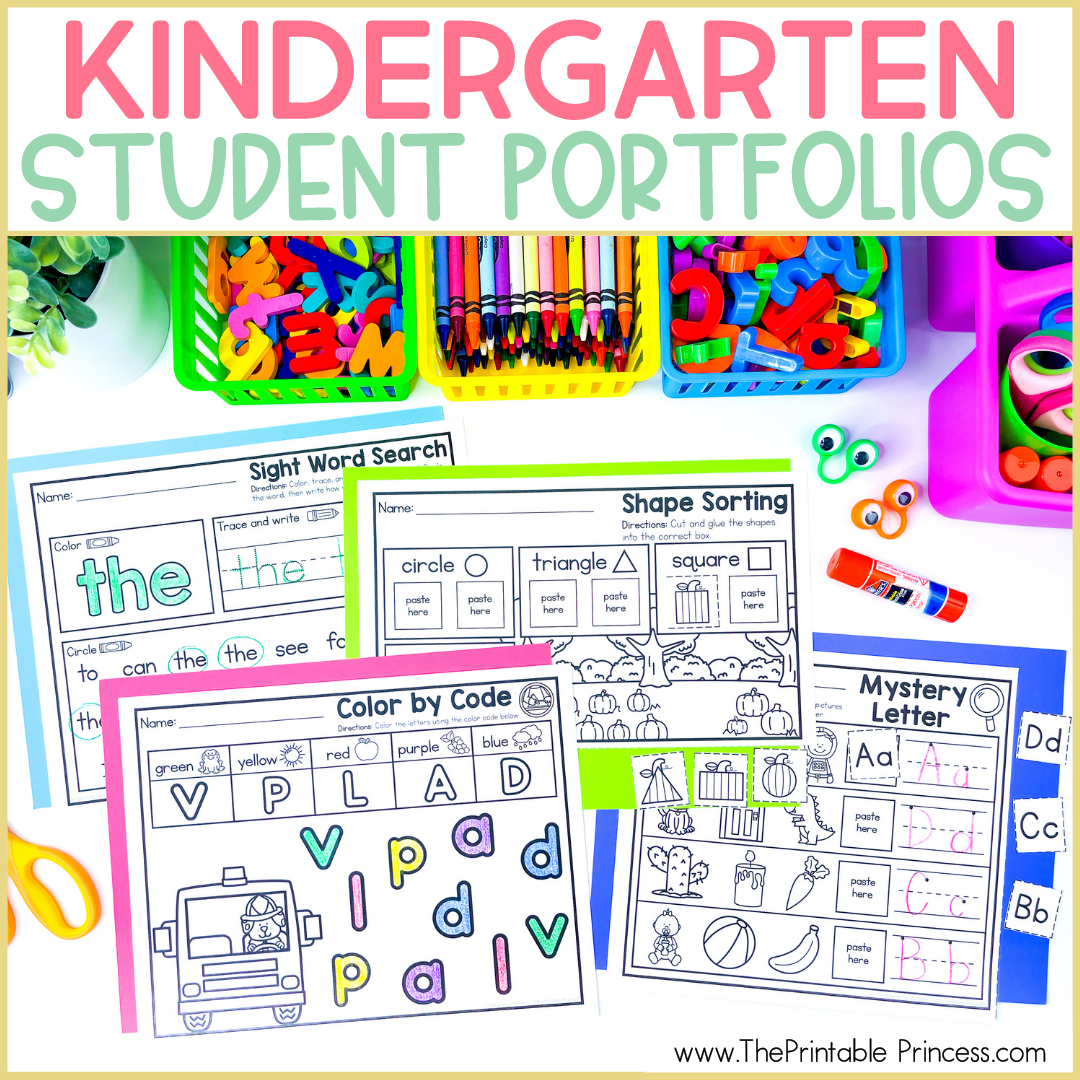
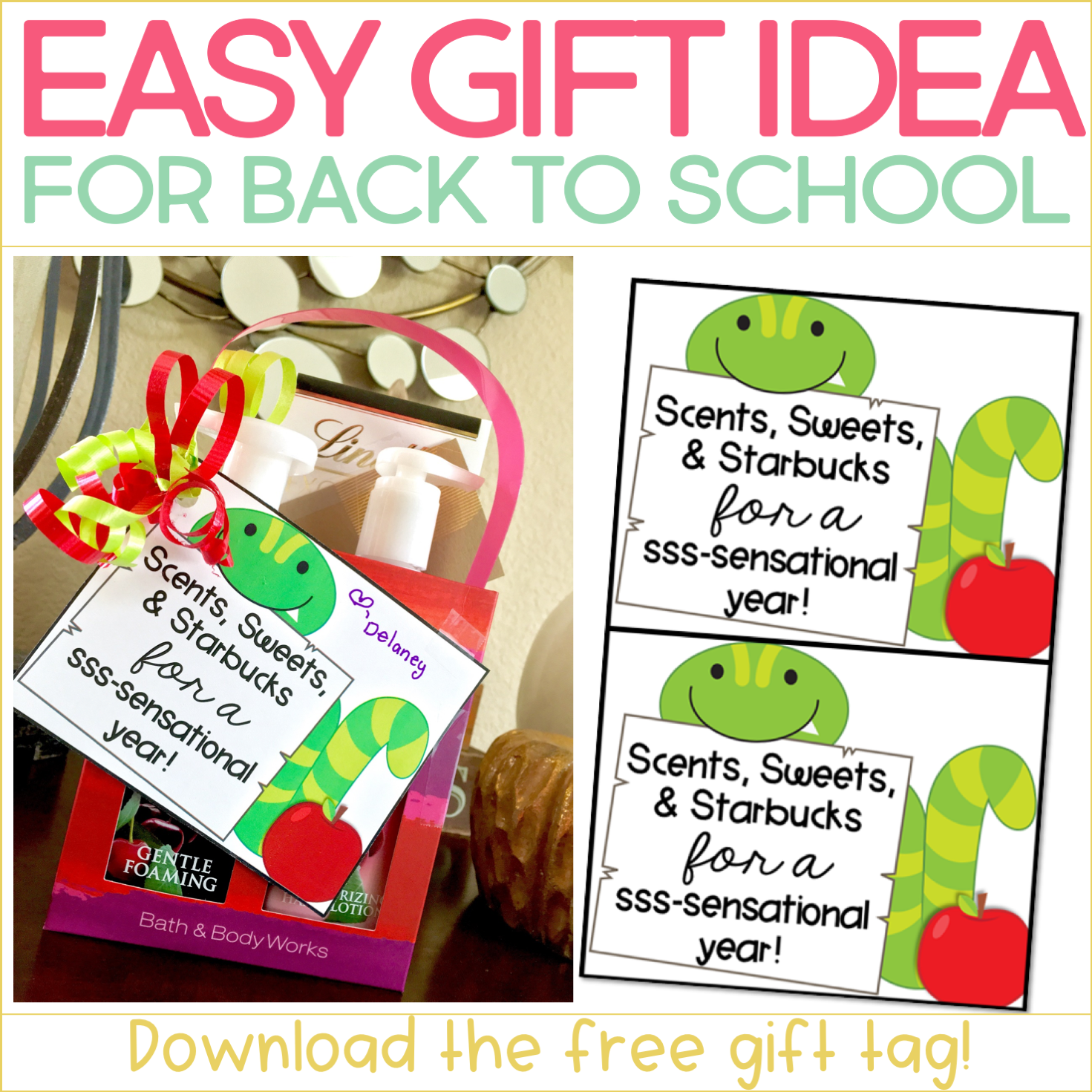
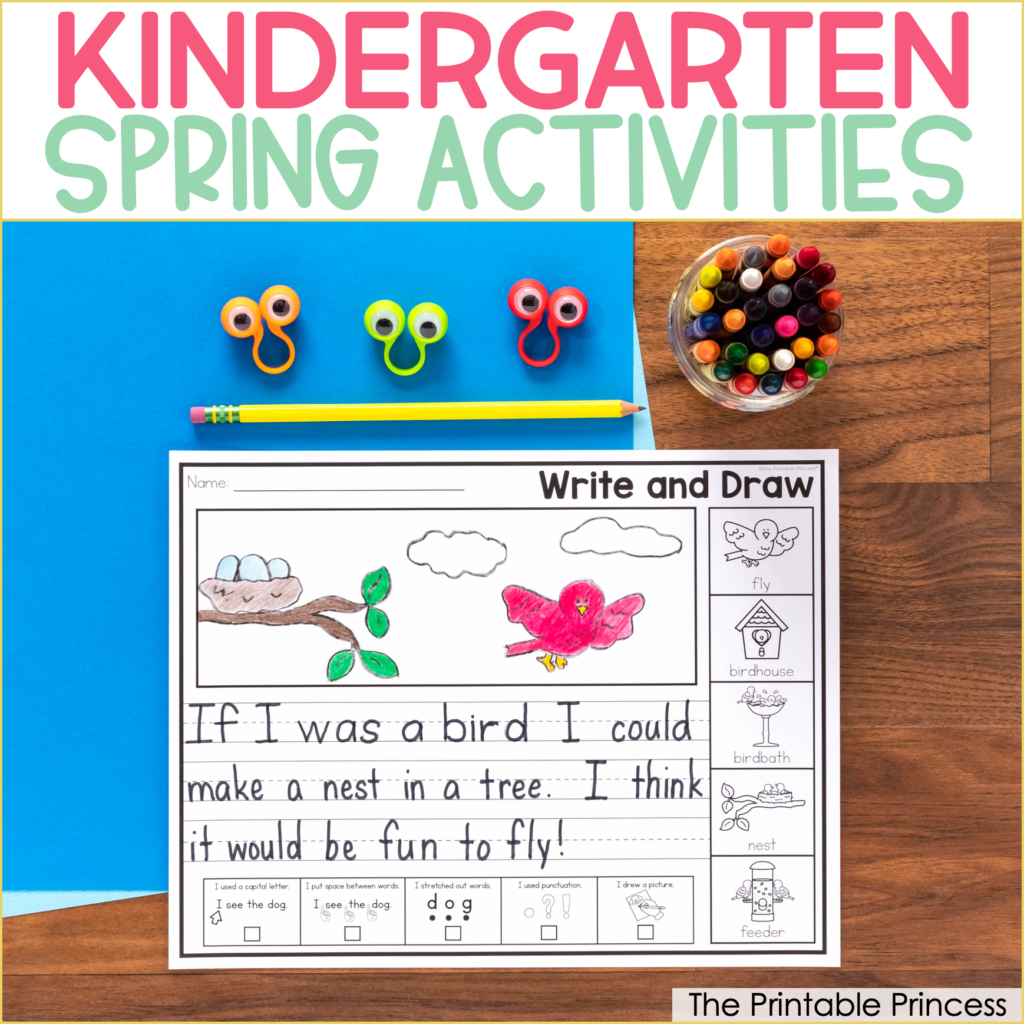
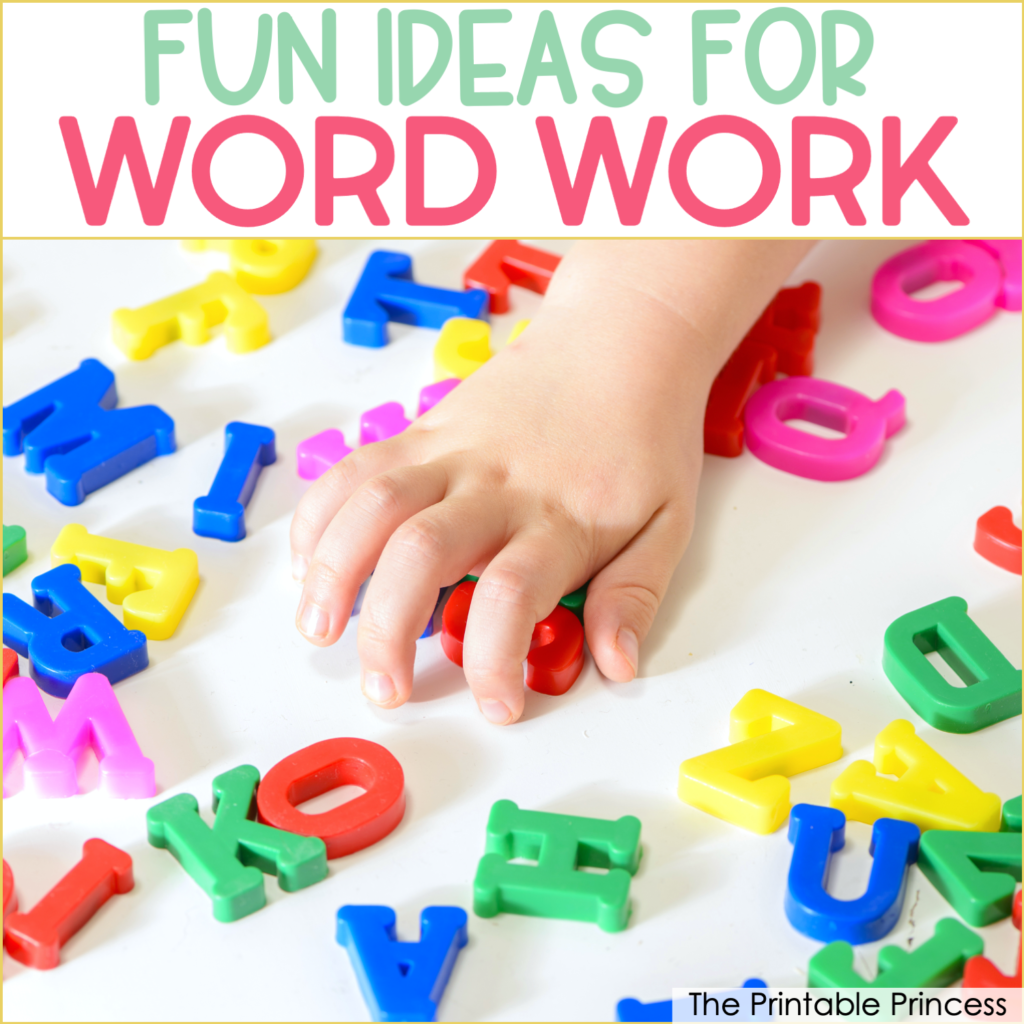
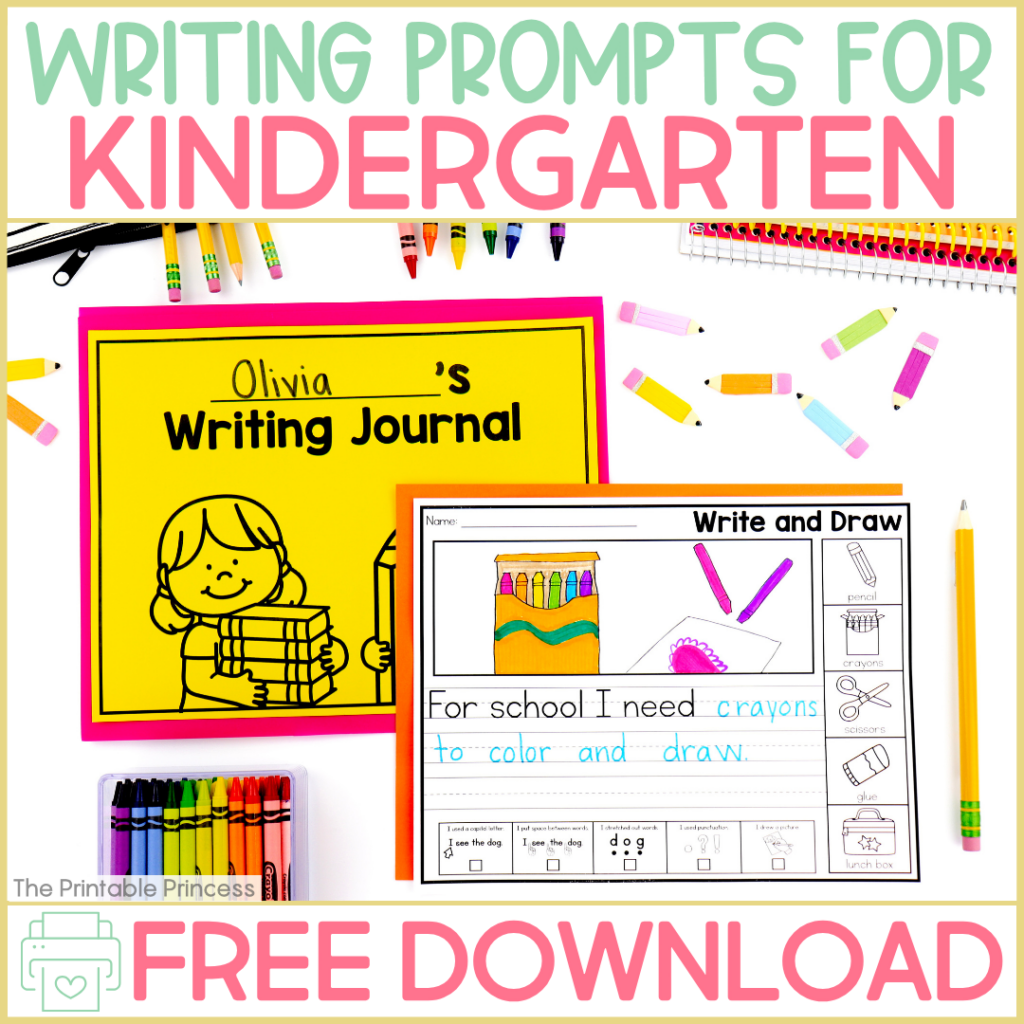
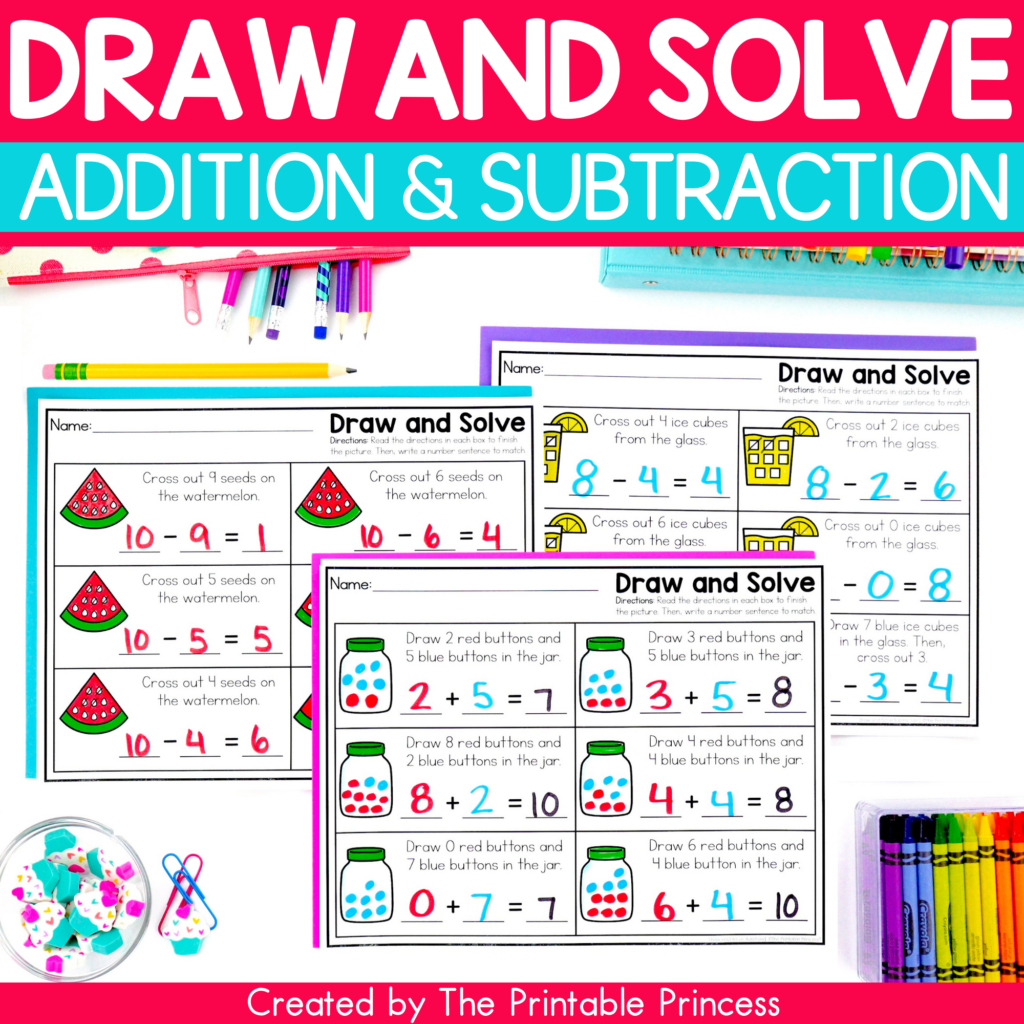
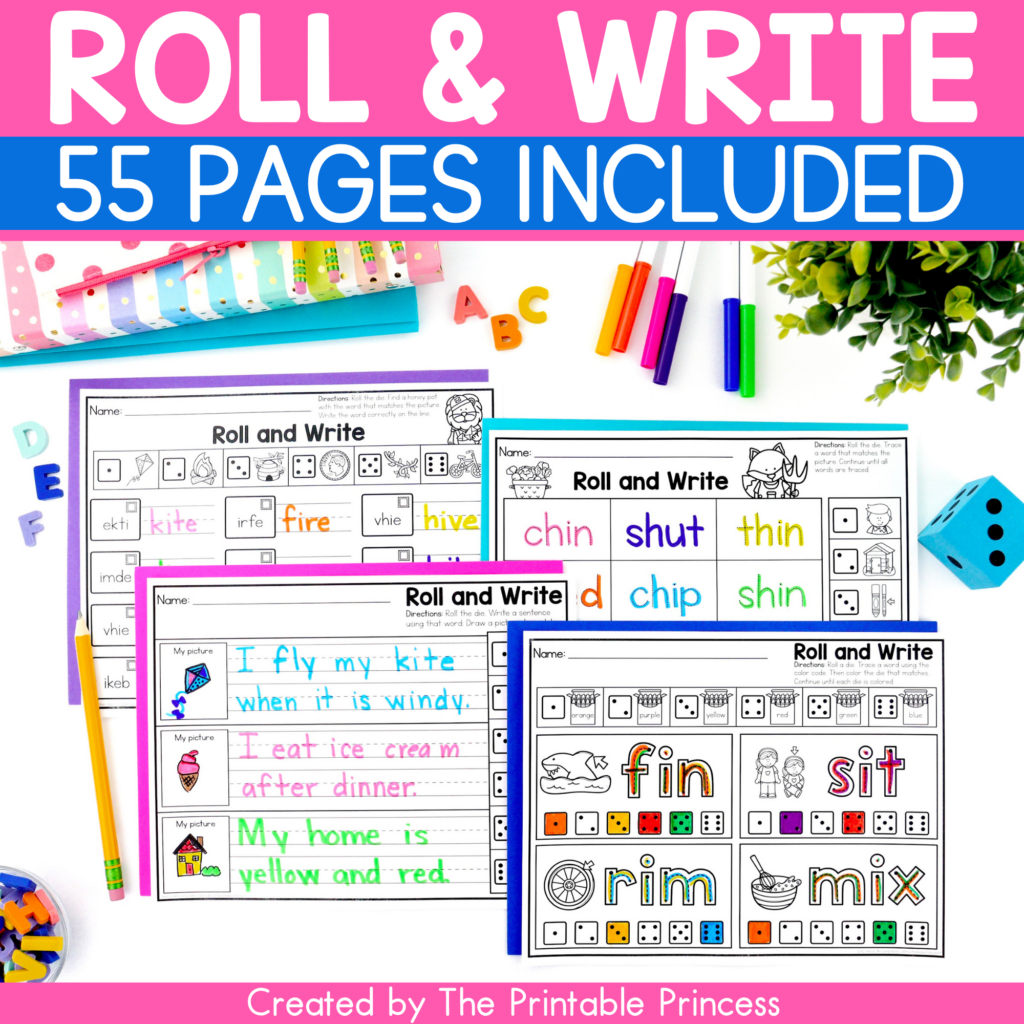
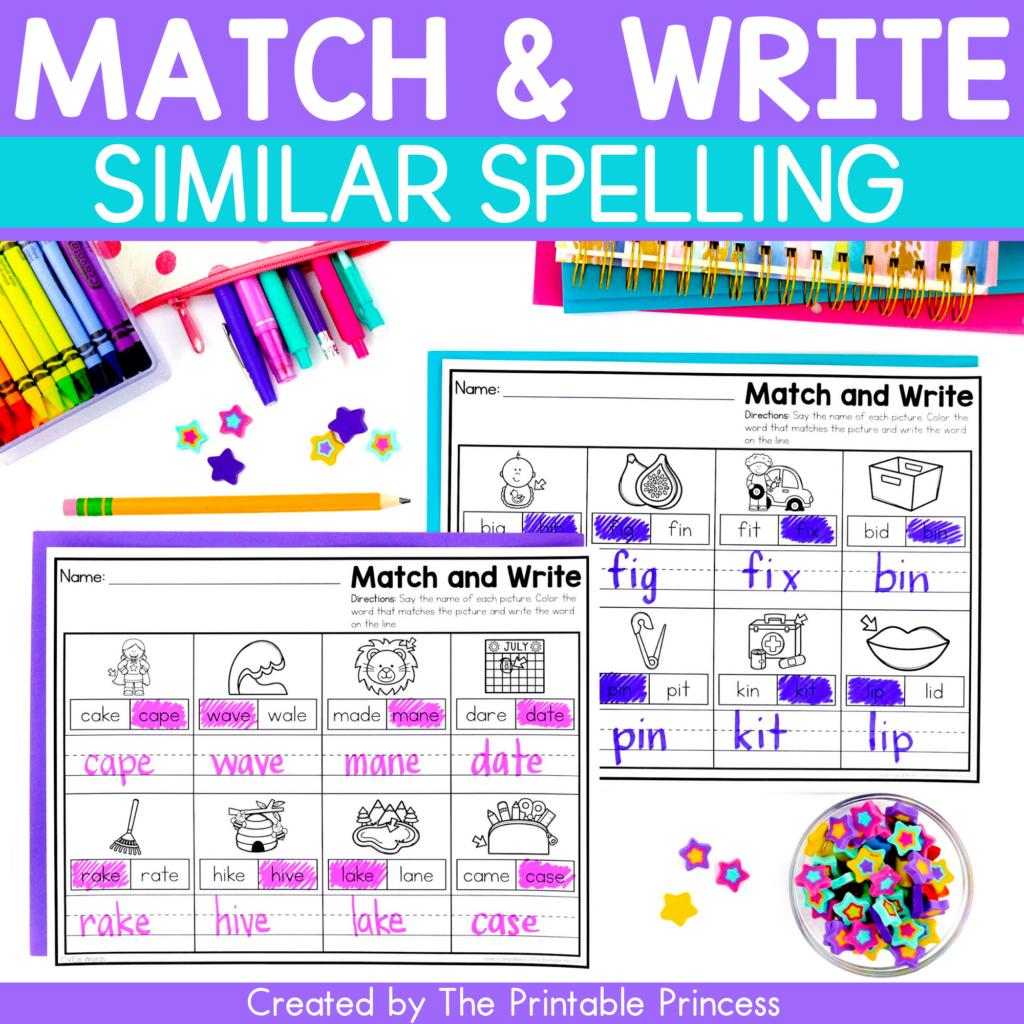
2 Comments